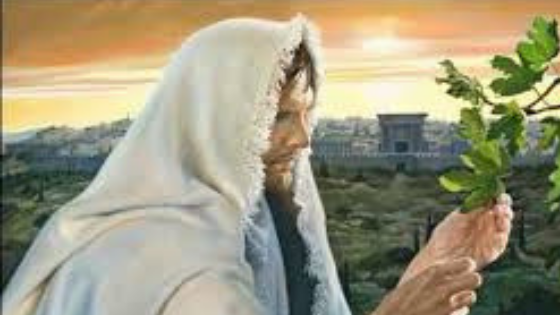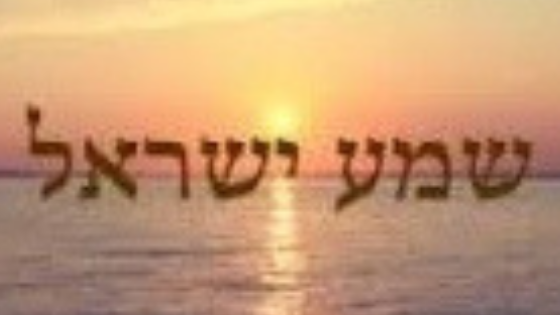
The Third Sunday of the Year (21 January 2018)
Lectionary readings: Jonah 3:1-5,10; Psalm 24(25):4-6,7b-9; 1 Corinthians 7:29-31; Mark 1:14-20
Today’s gospel offers a summary of Jesus’ mission according to Mark (1:14-15), highlighting four important aspects: it is good news (euangelion); it is responsive to the possibility of the present time (kairos); it is focused on the reign of God (basileia); and asks people to respond through their actions (“repentance”, metanoia).
This summary is followed by two separate call narratives. The first is of Simon (Peter) and Andrew, who in the Marcan tradition are two poor fishermen casting their nets from the shore as they presumably do not own a boat (1:16-18). Next, Jesus calls James and John, who are part of a family business with workers and a boat (1:19-20). The call of Jesus is for those who are poor and wealthy alike, and invites them into the mission of proclaiming good news of God (euangelion tou theou, 1:14): “the theological focus for this Gospel” (Beavis, Kindle locations 1274-1275).
In this commentary, I will focus on two aspects of this summary: time (kairos) and good news (euangelion). Time features in three of the four passages we listen to today. In the first reading, Jonah is commanded to proclaim the message of The Eternal (YHWH) to the city of Nineveh (Jonah 3:2): “Forty days more, and Nineveh shall be overthrown! (nehpakhet)” (3:4). There is some ambiguity as to the translation of nehpakhet, which might also be translated as “turns over (i.e., reforms itself)” (J.S.B., 1192). Whilst the number forty indicates a considerable period of time, the turnaround in the behaviour of the citizens of Nineveh “great and small alike” is as immediate as it is universal (3:5).
The reading from Paul’s first letter to the Corinthians is framed with a sense of eschatological urgency: “the appointed time [kairos] has grown short…For the present form of this world is passing away” (1 Corinthians 7:29, 31). “Paul’s advice is not to withdraw into the safe and unrestricted realms of the inner life, but to maintain freedom in the midst of involvement” (Conzelmann, 133). Paul is exhorting his readers to be present to the possibilities that the present – the only time we can encounter the Mystery of the Divine – is offering us, as we are.
A similar sense of “eschatological urgency” (Beavis, Kindle location 1384) is evident in Jesus’ first words in Mark’s Gospel, “The time [kairos] is fulfilled!” (Mark 1:15), as well as the responses of Simon, Andrew, James and John to Jesus’ call to follow him. Their response is immediate, as they leave their families and their livelihoods to follow Jesus as disciples (Mark 1:18, 20). Although it is more common for a disciple to seek out a rabbi (cf. last Sunday’s gospel, John 1:35-42, also b. Eruv. 30a; b. Ketub. 66b) there is also biblical precedent in Elijah’s seeking out Elisha (1 Kings 19:19-21, JANT, 637) – not the only echoes of the Elijah stories to find their way into the Gospels.
Karl Barth (Time Magazine, 1966) noted “Take your Bible and take your newspaper, and read both. But interpret newspapers from your Bible.” Here we find a link to the Psalm, with repeated requests for The Eternal to teach (lammed) its author God’s paths and truth (25:4, 5). The Eternal instructs and leads (25:8, 9). Just like Simon, Andrew, James and John, we are called to follow as disciples (talmidim): people eager to learn the ways of the Divine.
At mass on Sunday, our priest remarked that there is no ordinary time – the season to which we have just returned – only “extraordinary time.” I could not help but think of the richness of the term kairos, “which has the connotation of “proper” or “opportune” time as well as a time of crisis” (Donahue & Harrington 70-71). We can only live in the present and we are being called to read the “news” (reality) of our world in the light of the Good News of God announced by Jesus, which is rooted in the Scriptures we share with the Jewish people. Now is the time, there is only now, there is only kairos!
For Reflection and Discussion: How do I read the “news” of our world? Through what eyes do I consider its veracity? How will I respond to the Good News of God and of God’s Reign that I am called to participate in?
Bibliography: Mary Ann Beavis, Mark: Paideia Commentary (Grand Rapids, MI: Baker Publishing Group, 2011); Adele Berlin, Marc Zvi Brettler, and Michael A. Fishbane, eds., The Jewish Study Bible (Oxford: Oxford University Press, 2004); Conzelmann, 1 Corinthians, Hermeneia 67 (Minneapolis: Fortress Press, 1975); John R Donahue & Daniel J Harrington, The Gospel of Mark (Collegeville, MN: Liturgical Press, 2002); Amy-Jill Levine & Marc Zvi Brettler, The Jewish Annotated New Testament (New York: Oxford University Press, 2012).
This week’s Sunday Gospel Commentary was prepared by
Mark David Walsh, B.A., B.Theol. Grad. Dip. R.E., M.R.E., Australia, Bat Kol alum ‘01, ‘02, ’04, ‘13
Email address: markdavidwalsh@gmail.com
[Copyright © 2018]
……………………………………………………………
PLEASE NOTE: The weekly Gospel commentaries represent the research and creative thought of their authors, and are meant to stimulate deeper thinking about the meaning of the Sunday Scriptures. While they draw upon the study methods and sources employed by the Bat Kol Institute, the views and conclusions expressed in these commentaries are solely those of their authors, and do not necessarily represent the views of Bat Kol. Questions, comments and feedback are always welcome
……………………………………………………………………
Bat Kol Institute for Jewish Studies, Jerusalem
1983-2018
“Christians Studying the Bible within its Jewish milieu, using Jewish Sources.”



